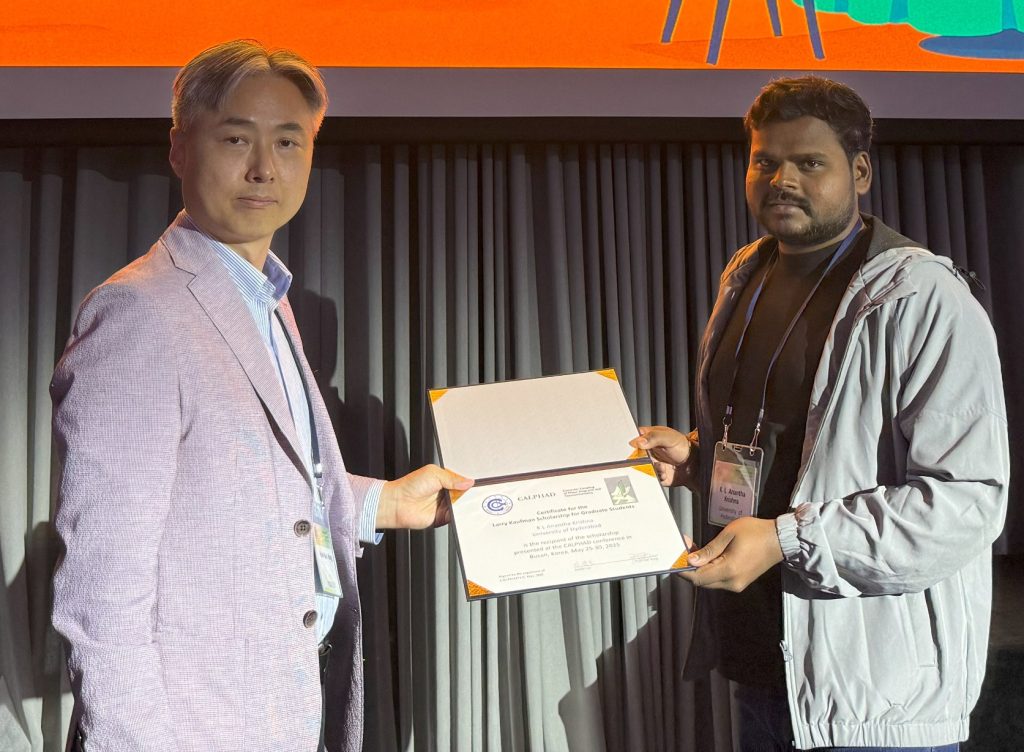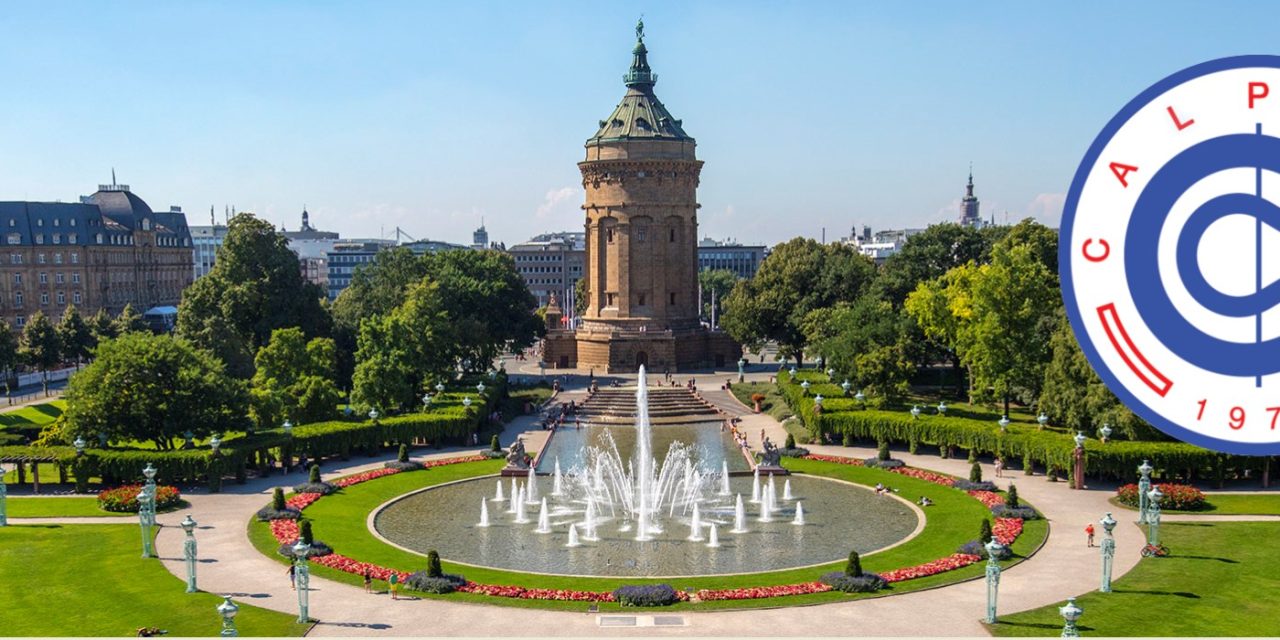Mr. Anantha Krishna K L, a research scholar under the supervision of Dr K. Guruvidyathri from the School of Engineering Sciences and Technology (SEST), University of Hyderabad, has been awarded the prestigious Larry Kaufman Scholarship at the 52nd international Calphad conference. His presentation was on “Thermodynamic re-assessment of LiCl-GdCl3 molten salt system”.

Anantha Krishna K L
The Larry Kaufman Scholarships are awarded for selected abstracts of contributed presentations of Calphad conference. The scholarships cover the registration fee and accommodation for the CALPHAD conference, which is about 3 lakhs INR this year at Busan, South Korea.
Abstract of the Presentation:
Spent nuclear fuel contains 96-97% recyclable material, which can be recycled through pyrochemical re-processing using molten salt electrolysis. The electrolyte used in reprocessing is molten Eutectic KCl-LiCl mixture to separate nuclear fuel (U, Pu, etc.) from fission by-products such as alkali-metals,
alkaline earth metal, lanthanides, etc. These fission by-products result in the formation of ternary and higher-order compounds in the electrolytic bath affecting the efficiency of pyrochemical re-processing. Phase diagram of these systems generated by means of CALPHAD (CALculation of PHAse Diagram) approach by coupling phase-equilibria and thermochemistry are crucial in better optimization of process parameters in pyrochemical reprocessing. The binary systems were previously assessed and the ternary system had been extrapolated from binary. In the present work, enthalpy of mixing for Ionic liquid phase in both LiCl-GdCl 3 and KCl-GdCl 3 binary systems were included for more reliable Gibbs’ energy descriptions. A new ternary compound LiGdCl 4 has been identified in LiCl-GdCl 3 system. The phase equilibria data available for LiCl-KCl-GdCl 3 ternary system is also included for better assessment of the ternary system. The thermodynamic data for pure salts were sourced from SGTE Substance (SSUB) database. This study provides valuable insights into the solubility limit of GdCl 3 in molten LiCl-KCl electrolyte and their thermodynamic behavior, contributing to the improved efficiency of pyrochemical reprocessing of spent nuclear fuel.

